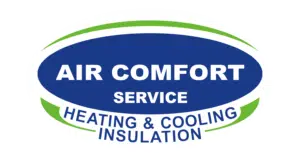Frequently Asked Questions: A Heating & Air Conditioning Guide
Top Answers for Your Common HVAC Questions
Owning a home can be a lifelong learning process, even for the seasoned homeowner. It can be hard to get questions answered by professionals, so St. Peters technicians have compiled an in-depth HVAC FAQ to address some of the more important ones.
Learning the following information can be very helpful in keeping the air quality in the home at its highest possible level. In many cases, it can also help you save money, which is always a win-win for any homeowner.
“How Can Homeowners Improve Indoor Air Quality?”
Most homeowners are aware of the impact that their HVAC system has on their indoor air quality, but an HVAC FAQ leads to many people wondering what else they can do. A good way to help improve indoor air quality is by making sure to keep the home clean.
Regular sweeping and vacuuming can keep dust, dirt, and other allergens from circulating around the house. It is important to use a vacuum cleaner that has a HEPA filter, which traps up to 99.97% of micro-particulates.
Sheets, drapes, and other allergen attracting items should also be washed in water that is at least 130 degrees Fahrenheit. There are products on the market like dust mite-proof bed and pillow covers that can also help reduce allergic exposure and reactions.
Finally, homeowners should keep the home as free as possible from clutter as it tends to collect dust. Another tip to address this HVAC FAQ is by opening the windows more. This may seem counterintuitive, especially in the winter, but it can keep a flow of fresh, clean air coming into the house while helping flush out the stale, dusty air that keeps circulating.
“How Often Should A Homeowner Change Their Air Filters?”
Another HVAC FAQ is about the frequency home air filters should be changed. This, in fact, is one of the things that homeowners tend to neglect that actually has a huge impact on their health.
Air filters are usually made out of a fiberglass material that is sandwiched between cardboard. Their main function in the home is to keep the air that circulates as clean and free of dust and debris as possible. The filters actually not only traps but also holds the particulate matter and other potential contaminants so that they don’t recirculate.
Filters are all rated on what is known as the MERV scale – the minimum efficiency reporting value. This value can be anywhere from 1 to 16, with higher numbers indicating a better filtration level. While there are some air filters on the market with a value higher than 16, they are usually too bulky for the home HVAC system.
“Do Air Ducts Really Need To Be Cleaned?”
The short answer for this HVAC FAQ is yes, in most cases they do.
Cleaning the home’s air ducts can help get rid of dust and other allergens that get caught inside it. It can also help with air ducts that have visible growth of molds and those that have vermin infestation. However, it doesn’t need to be done as often as people may think.
With air duct cleaning, HVAC technicians clean all parts of the system – the supply and return registers, grilles, diffusers, heating and cooling coils, heat exchangers, etc. However, it only needs to be done every two to five years, depending on the individual home and family circumstances.
Benefits of air duct cleaning, other than removing dust, dirt, and allergens, include removing odors from the house (especially cigarette smoke and pets). The service should always be performed by a licensed HVAC technician.
Contact Cooling and Heating Pros
The licensed, professional staff at Air Comfort Service, Inc. have been serving the HVAC needs of the St. Peters, Missouri community for more than 50 years. Their trustworthy technicians provide award-winning, full-service air conditioning, furnace, and heater repair, maintenance and installation with straightforward pricing.
